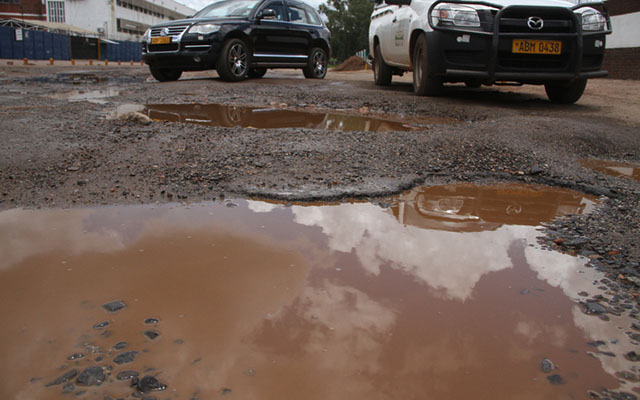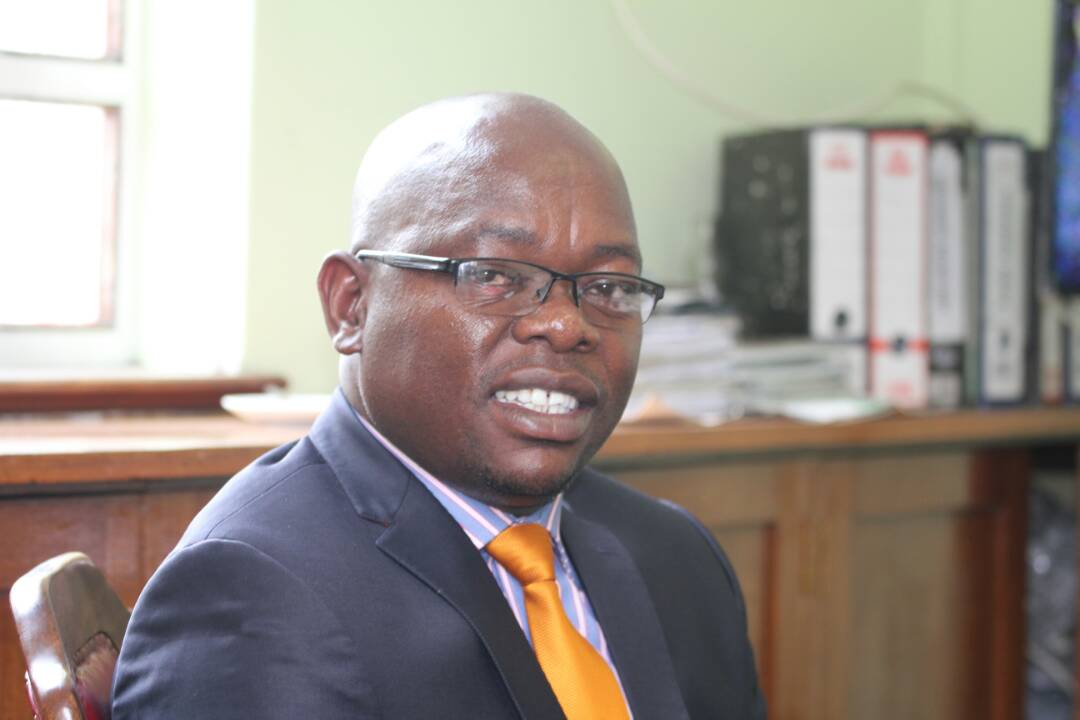Horrendous menace on Harare roads
Sheillah Mapani and Rumbidzai Ngwenya Features Writers
For the past several years, there has been a public outcry over the state of roads in Harare which have been infested by potholes and some that have never been tarred.
This is because most of the roads have outlived their supposed normal life-span of 20 years as some were constructed during the colonial era which caused the Ministry of Local Government, Public Works and National Housing to fork out $26 million to Harare City Council last year for roads rehabilitation.
Despite the ministry’s effort, a tour by The Herald team around Harare recently witnessed potholes dotted everywhere. There was also the menace of bumpy, untarred roads – especially in Harare South. Motorists bemoan that they have to take their vehicles for service weekly, which is a challenge considering Zimbabwe’s economic challenges.
“The state of roads in Harare is distressing and costly. It seems we are now paying for council’s catastrophes since the costs are borne by us. It’s rare to spend a week without taking your vehicle to a mechanic due to the destructive nature of roads we are driving on,” complained Shadreck Nyamadzawo, a motorist in Dzivarasekwa.
Bad roads in Harare are the major cause of horrendous accidents that are reported daily, which raises questions on how the funds from the ministry were utilised by the city.
“Our hopes were raised by money given to council by the ministry which has lost meaning. The rutted dust roads here in Harare South are leaving motorists with no option but dicing with death as many deaths from accidents were reported in this area,” lamented Solomon Chipadza in Southley Park.
Moved by lamentations from residents, Harare Residents Trust director, Precious Shumba said there is no secrecy on poor road networks of Harare so the council should rise up to sound road rehabilitations.

Motorists negotiate their way along a damaged Kelvin Road South in Graniteside, Harare. — (Picture by Justin Mutenda)
“Harare roads are heavily potholed and in a sorry state, largely impassable so City of Harare needs to develop a comprehensive plan of road rehabilitation, in a phased out programme,” said Mr Shumba.
“They should provide resources in their annual budget and lengths of road to be maintained, upgraded and rehabilitated. They have to lobby through the Urban Councils of Zimbabwe for a systematic and timely disbursement of roads levy funds,” he said.
Mr Shumba said there is increased vehicle maintenance costs, with vehicle suspensions and tyres becoming a major expense for vehicle owners which he blames on lack of road maintenance, neglect and poor prioritisation by the City of Harare.
“The city becomes unattractive to investors and most basic services become more expensive as businesses factor in transport and maintenance costs in the prices of their services,” he said.
“The Harare Residents Trust lobbies the City of Harare to rehabilitate identified huge potholes which they have been filling up when they had no resources. Our structures have tried their best to intervene by organising road maintenance works and pothole patching exercises in Msasa Park, Hatfield, Glenview and Waterfalls,” he said. He condemned council for negligence and its failure to justify their mandates.
“The status of our roads is evidence that council does not prioritise road rehabilitation as a key project that must be undertaken. The tragedy is that they are taking a very long time to finish off their roads that they have resurfaced and there is abundant evidence that they are using workers without the expertise, hence the peeling off tar, cracking and potholes that are emerging a few months after the completion of the works,” he said.
“They need to use technically competent personnel to deal with our roads. The City of Harare cannot continue to ask for time when it is evident on the ground that they are not keen on putting concrete plans to address the challenge of poor roads,” affirms Mr Shumba.
Total blame on business production drawbacks has been conferred to poor road networks in Harare which have contributed to the escalating prices of goods which smashes the government policy of restoring economic legacy. Urban Planning consultant working in Zimbabwe and the Eastern and Southern Africa region, Percy Toriro gave emphasis on requirement of road maintenance as they are of prominence to the country’s well-being.
“Roads are extremely important in any urban area as they facilitate the safe and convenient conduct of business as well as the day to day movement of people.
“Good roads can also translate to a more robust transport system hence areas with poor roads tend to be shunned by public transport operators or the service becomes more expensive,” he said.
Like the Residents Trust, Urban Planners indirectly lay blame on Council for failing to co-operate well and cope with other responsible authorities who have offered assistance on the rehabilitation of roads in Harare which is taking long to sound.
“Urban planners are also responsible for roads planning and in Harare today the challenge is not of planning but of maintenance and construction.”
“There are roads that we planned years ago that have not been constructed until today. A quick example is the Harare Drive missing links and several planned freeways which are yet to be constructed. It is a budgetary issue and perhaps a priority issue as well,” he said.
He added, “ For the sustainable development and maintenance of our roads, we need a delicate balance between strict adherence to programmed maintenance and investment in new infrastructure which requires both budgetary discipline as well as innovation.” As a solution, Mr Toriro suggested that with current infrastructure deficit we should be prepared to try different models for development.
“All infrastructure development models should be considered such as loan financing, BOT, BOOT, partnerships, and so on,” he said. Harare roads have since been declared a state of disaster by the Government hence the providing of money by the Ministry to the Council for road upkeep.
The Harare City Council through its Corporate Communications Manager, Michael Chideme, has acknowledged that the Harare road network is bad but perceives the city returning to its Sunshine city status.
“We agree that our roads are in a poor state and are appealing for investment but we are not sitting on our laurels, we are undertaking rehabilitation on a number of roads in Harare.
“We have done some already, resurfaced them, filling potholes and reconstructing some of the roads like High Glen, Patrenda, Enterprise, Bison and George to name a few. We started last year and we continue to do that work this year,” said Mr Chideme.
Despite the allocation that was given to council last year, Mr Chideme said with some work in progress, a major setback on the refurbishment of these roads lies sorely on lack of funding for the Council.
“The underlying issue is on funding, it should be available to do the roads. We are still drawing on the amount given by the Ministry to do the roads that we are working on under the Emergency Road Rehabilitation programme.
“The rehabilitation is being done by the $26 million from the Ministry and also money from our internal resources,” he said.
Addressing the Harare South issue of untarred roads, Mr Chideme said they are working on it since it is a new settlement and encouraged residents to work together with the council for development purposes.
“Harare south is a new settlement. Council, Government and UDCOP have a program in Harare South where they are doing a reorganisation of the settlement to make sure that people are properly settled.
“Our encouragement to people of that area is that they should pay for municipal services so that the money is used for service delivery. There is no way we can start outing roads in Harare South when we do not receive money from residents,” he said.
Mr Chideme said there is much construction of roads going on around the city and he sees Harare attaining a world class city status on the horizon. The urgency of this matter cannot be overemphasised. Harare plays an important role as the capital city in boosting confidence to foreign investors. If roads are left unattended, it becomes a stumbling block to economic progress.














Comments